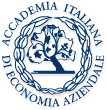A framework for evolving human-technology practices in startling times
This conceptual paper proposes a new framework for integrating three essential but conflicting organizational design and evolution purposes. First, organizations must evolve to pursue the dual scope of shaping their context and adapting to its variations. Second, the same characteristics that guarantee efficiency hinder personal and organizational change and evolution. Third, organizations need to develop the human ability to pursue meaning dynamically, make sense of emerging cues and symbols they are unfamiliar with, recompose conflicting goals, and solve paradoxes. The paper aims to propose a conceptual framework to cope with these challenges, which are paradoxically intertwined. Our framework integrates results and models from three streams: the four ‘P’s approach by Degani and Wiener, Feldman’s dual role of routines, and mixed results from decision-making and organizational learning studies. We also considered technology's role in supporting humans in dealing with unforeseen circumstances, learning, feedback, and managing surprising and startling scenarios. We seek to shed new light on the word practice, as it can fill the theoretical gap in interpreting how humans, technology, and context interact to manage complexity, making distinctions but avoiding reductive and critical disjunctions (Shotter & Tsoukas, 2014; Tsoukas, 2017).




